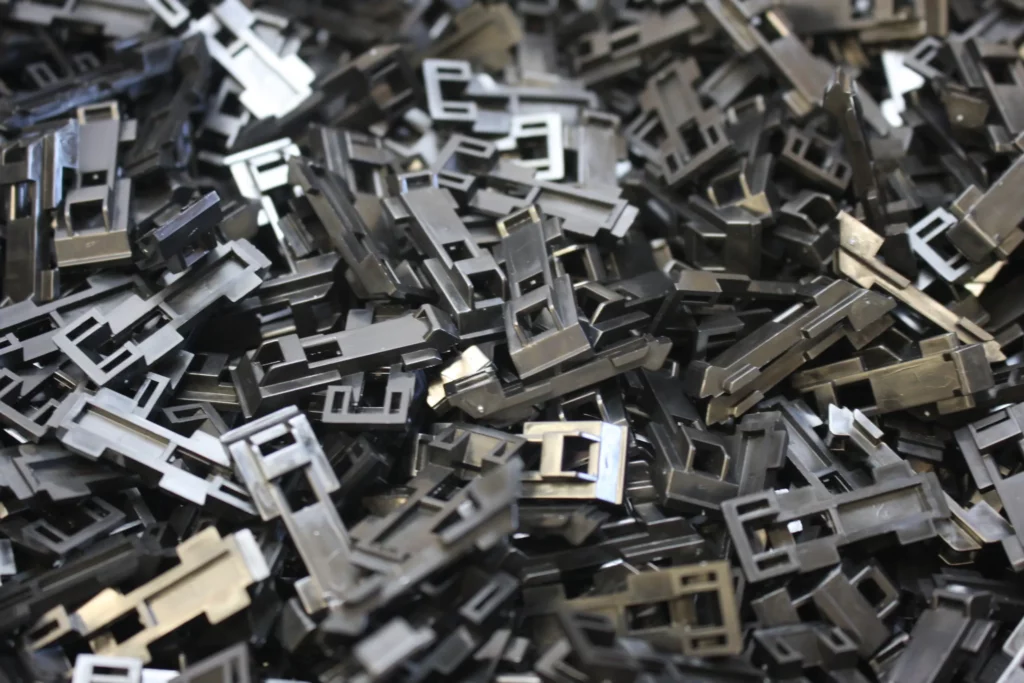
In the ever-evolving world of manufacturing, custom injection molding stands as a transformative process that has revolutionized the production of a wide range of products across various industries.
From consumer electronics to automotive components and medical devices, custom injection molding has become an integral part of modern manufacturing, enabling companies to create intricate and high-quality products with unmatched efficiency and precision.
Understanding Custom Injection Molding
Custom injection molding is a highly versatile manufacturing technique that involves the production of complex plastic parts by injecting molten thermoplastic materials into a mold cavity.
The mold is precision-engineered to match the exact specifications of the desired product, allowing for the creation of intricate shapes, sizes, and textures with exceptional consistency. The process begins with the selection of the appropriate thermoplastic material, which is heated to a molten state before being injected into the mold under high pressure.
Once the material cools and solidifies, the mold is opened, and the finished product is ejected. This seamless cycle can be repeated thousands or even millions of times, making custom injection molding ideal for high-volume production runs.
Benefits of Custom Injection Molding
Precision and Consistency: Custom injection molding offers unparalleled precision, allowing manufacturers to produce parts with intricate details and tight tolerances. The use of advanced machinery and computer-controlled systems ensures consistency across each product, minimizing defects and enhancing overall quality.
Cost-effectiveness: Despite the initial investment in tooling and molds, custom injection molding proves cost-effective in the long run due to its ability to produce large quantities of parts in a short period. The automated process reduces labor costs, while the low scrap rates contribute to optimal material utilization.
Material Variety: Custom injection molding supports a wide array of thermoplastic materials, including ABS, polypropylene, polystyrene, nylon, and more. This diversity allows manufacturers to choose the most suitable material for their specific application, considering factors such as strength, flexibility, chemical resistance, and heat resistance.
Faster Time-to-Market: As the custom injection molding process is highly efficient, it significantly reduces the time required to produce finished products. This faster time-to-market can be a competitive advantage in industries where speed is essential to success.
Applications of Custom Injection Molding
The versatility of custom injection molding has led to its adoption across numerous industries, with applications that include:
Automotive: Custom injection molding plays a crucial role in automotive manufacturing by producing various components such as interior trims, dashboard panels, bumpers, and even intricate engine parts.
Consumer Electronics: The sleek and intricate designs of modern electronics are made possible through custom injection molding. From smartphone casings to computer peripherals, this process ensures the production of durable and aesthetically pleasing products.
Medical Devices: Custom injection molding is widely used in the production of medical devices, such as syringes, vials, connectors, and inhalers, where precision and hygiene are paramount.
Aerospace: In the aerospace industry, lightweight yet durable components are vital. Custom injection molding allows the creation of parts like air ducts, seat components, and interior panels with high strength-to-weight ratios.
Packaging: Plastic packaging, including bottles, caps, and containers, heavily relies on custom injection molding due to its ability to produce consistent, tamper-resistant, and cost-effective solutions.
Environmental Considerations
While custom injection molding offers numerous benefits, environmental concerns about plastic waste and pollution are valid.
To address these issues, manufacturers are increasingly adopting sustainable practices, such as using biodegradable and recycled materials, optimizing production processes to minimize waste, and exploring alternative materials that have a reduced environmental impact.
Conclusion
Custom injection molding has emerged as a transformative force in the manufacturing world, unlocking endless possibilities for innovation and efficiency. From complex automotive components to delicate medical devices and everyday consumer products, this versatile process ensures high precision, consistency, and cost-effectiveness.
As the industry continues to evolve, it is crucial for manufacturers to balance innovation with sustainable practices to build a future where custom injection molding thrives without compromising the well-being of our planet.
Leave a Reply